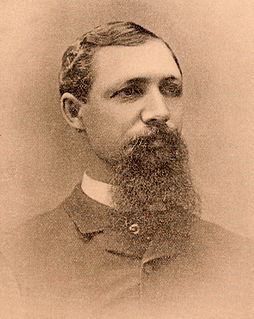A Quote by Plato
The cause of all sins in every case lies in the person's excessive love of self.
Related Quotes
Love is about bottomless empathy, born out of the heart’s revelation that another person is every bit as real as you are. And this is why love, as I understand it, is always specific. Trying to love all of humanity may be a worthy endeavor, but, in a funny way, it keeps the focus on the self, on the self’s own moral or spiritual well-being. Whereas, to love a specific person, and to identify with his or her struggles and joys as if they were your own, you have to surrender some of your self.
People think that a liar gains a victory over his victim. What I’ve learned is that a lie is an act of self-abdication, because one surrenders one’s reality to the person to whom one lies, making that person one’s master, condemning oneself from then on to faking the sort of reality that person’s view requires to be faked…The man who lies to the world, is the world’s slave from then on…There are no white lies, there is only the blackest of destruction, and a white lie is the blackest of all.
This doctrine of forgiveness of sin is a premium on crime. Forgive us our sins means Let us continue in our iniquity. It is one of the most pernicious of doctrines, and one of the most fruitful sources of immorality. It has been the chief cause of making Christian nations the most immoral of nations. In teaching this doctrine Christ committed a sin for which his death did not atone, and which can never be forgiven. There is no forgiveness of sin. Every cause has its effect; every sinner must suffer the consequences of his sins.
He told people that their sins were forgiven, and never waited to consult all the other people whom their sins had undoubtedly injured. He unhesitatingly behaved as if He was the party chiefly concerned, the person chiefly offended in all offenses. This makes sense only if He really was God whose laws are broken and whose love is wounded in every sin.
The cause of all the blunders committed by man arises from this excessive self-love. For the lover is blinded by the object loved; so that he passes a wrong judgment on what is just, good and beautiful, thinking that he ought always to honor what belongs to himself in preference to truth. For he who intends to be a great man ought to love neither himself nor his own things, but only what is just, whether it happens to be done by himself, or by another.
What is the cause that one is hardened, and another readily moved to compunction? Listen! It springs from the will, in the latter case a good will, in the former an evil one. It springs also from the thoughts, in the former case evil thoughts, in the latter from the opposite; and similarly from actions, in the former case actions contrary to God, in the latter godly ones... it is by free choice of the will that every person either attains compunction and humility, or else becomes hard-hearted and proud.
The third doorway is the Doorway of Unconditional Self-love, which corresponds to the energy center located in the solar plexus area. As I said earlier, the key to feeling love and living in love is having self-love. I mean real unconditional self-love, not "I love myself because I'm a good wife" or "I love myself because I do a good job at work" or "I love myself because I look a particular way." It's because I love myself no matter what. That's where our real power lies, in the ability to love ourselves unconditionally.
You hide your instinctive self and instead create a social self with lies. That's how people are able to get along with each other. What's scary is when you strip all the lies away to get at the essential you. What if it's pure evil? You don't want to face that. So lies aren't all bad - we need them to live.
The continuous disasters of man's history are mainly due to his excessive capacity and urge to become identified with a tribe, nation, church or cause, and to espouse its credo uncritically and enthusiastically, even if its tenets are contrary to reason, devoid of self-interest and detrimental to the claims of self-preservation.We are thus driven to the unfashionable conclusion that the trouble with our species is not an excess of aggression, but an excess capacity for fanatical devotion.
Your Nafs is just like a suckling child. If you do not take the pains to wean him, he will yearn for his mother's breast even when he's grown up. Therefore you should not try to satisfy your lust by indulging in sins. This will only increase the desire for more sins. The same is the case with the disease of gluttony. The more a person eats, the more his hunger increases.
Extraordinarily excessive sensuality it may be .. but it all comes down to the same thing in the end, and one means is surely as good as another, since the end obtained is always the same. In any case the exceptional, endlessly repeated, is no different than the banal; and unceasing recapitulation can add nothing, in the end, to the sum of experience. I am weary and hopeless three times the dupe. Why have you trained me in the shame of abominable sins?









































